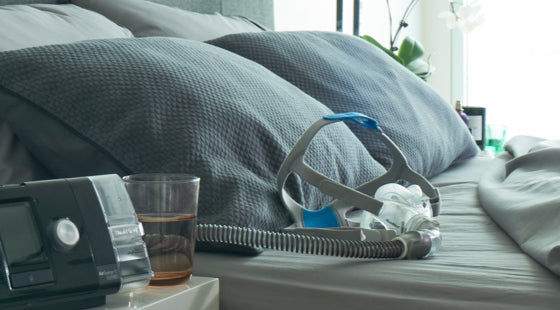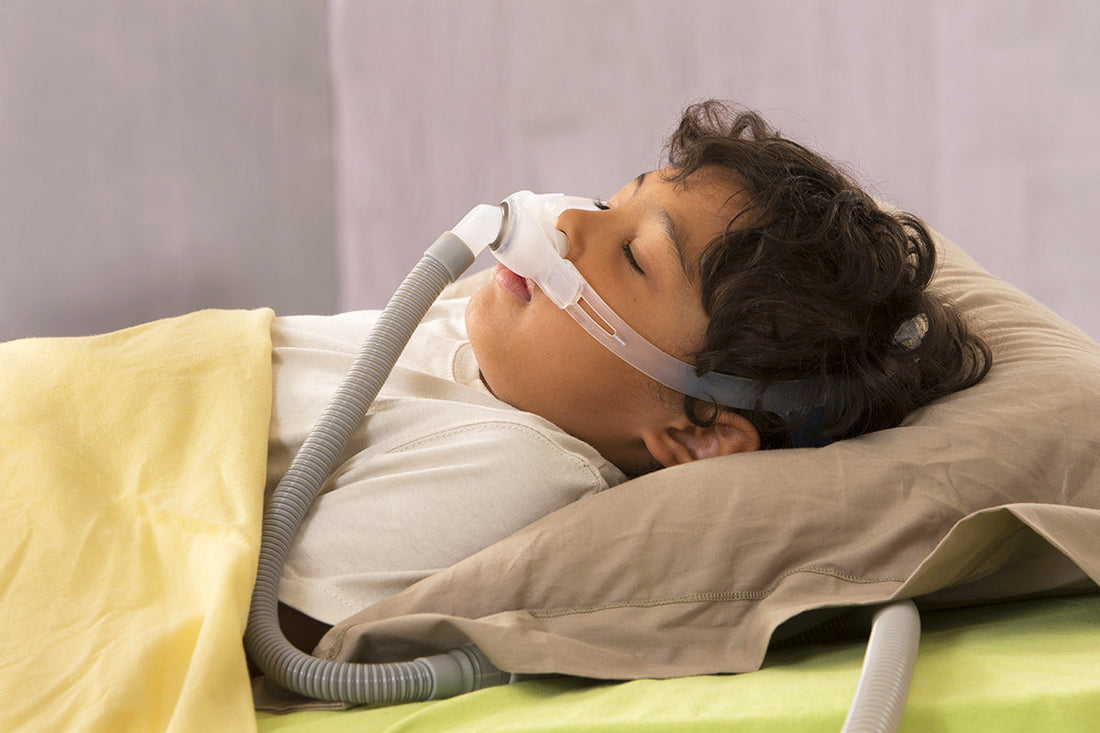News
Sleep Apnea in Children
Think sleep apnea doesn’t affect children? Think again. While it is not as common, children can occasionally be affected by a sleep disorder called pediatric obstructive sleep apnea. OSA in children may look a little different in children than it does for adults, however, it is important to remember that children require a good night’s sleep to help aid their growing bodies. Because of this, seeking medical help is very important in order to treat sleep apnea symptoms. Causes and Risk Factors Some of the most common risk factors for sleep apnea in children include enlarged tonsils and adenoids, obesity, and underlying health conditions such as Down Syndrome, Cerebral Palsy, and craniofacial abnormalities, just to name a few. Some children may also develop OSA, simply based on family history of the condition. Symptoms to Watch Much like adults, children who have OSA may experience symptoms such as snoring, restless sleep, pauses in breathing, and coughing or choking. Occasionally children may have other symptoms such as night sweats, bed-wetting, or sleep terrors. Untreated OSA in children can also have an effect on how a child functions during the daytime, including learning and/or behavioral problems, hyperactivity, poor weight gain as well as poor performance in school, and difficulty paying attention. Treatment OSA treatment in children will depend on many factors. Your doctor may refer your child to a sleep specialist for further examination of their symptoms. Managing weight in children with obesity issues will often help to treat mild cases of sleep apnea in children. Children with enlarged tonsils and/or adenoids may require surgery in order to treat the sleep apnea. Some cases may even require the use of a CPAP machine to treat the sleep apnea, whether temporary or permanent, though this is not as common for children as it is in adults. Early diagnosis and treatment are key to preventing complications that could affect the child’s growth and development. If your child consistently wakes up feeling tired or is experiencing problems functioning during the daytime, then it’s time to call your doctor. Left untreated, OSA in children can lead to some serious health problems that could cause issues with their growth and development.
about Sleep Apnea in ChildrenSix Sleep Tips for Post-Secondary Students
wp:paragraph With the long summer days coming to an end, classes for college and university are just starting for the year and whether you are going back to on-campus learning or your classes are still virtual, it’s time to get your sleep routine in check. /wp:paragraph wp:paragraph It’s no secret that post-secondary students are not exactly known for having the best sleeping habits. Sleep is essential for everyone, but if you are a student in college or university, it is more important than ever to make sure you are well-rested during the daytime so you can concentrate on your studies and have a successful semester. /wp:paragraph wp:paragraph Here are a few tips for post-secondary students to get a good night’s sleep; /wp:paragraph wp:list {"ordered":true,"type":"1"} Keep your sleep schedule as consistent as possible: many class schedules in college and university can vary day to day, meaning you may have to deal with classes in the early mornings and/or late evenings. Try your best to go to bed and wake up at within 1-2 hours (even on weekends!) Practice good sleep hygiene: make sure your sleep environment is cool and dark, take advantage of blackout curtains and earplugs if necessary. Following a relaxing routine right before bed will also be important to help you prepare for a good night’s sleep. Don’t use your bed for anything other than sleeping: as tempting as it may be to take your laptop on the bed to finish that essay, don’t do this! Avoid caffeine before bedtime: a cup of coffee may seem tempting if you are doing homework into the evening hours but this will keep you awake at night. Keep alcohol, nicotine, and cannabis to a minimum: all of that late night partying is not great for your sleep cycle. Limit how much you drink in the evening hours and don’t use nicotine or cannabis too close to bedtime. Keep your naps short: if you absolutely need to nap during the daytime, one hour or less is recommended, that way it doesn’t interfere with your bedtime. /wp:list
about Six Sleep Tips for Post-Secondary Students

